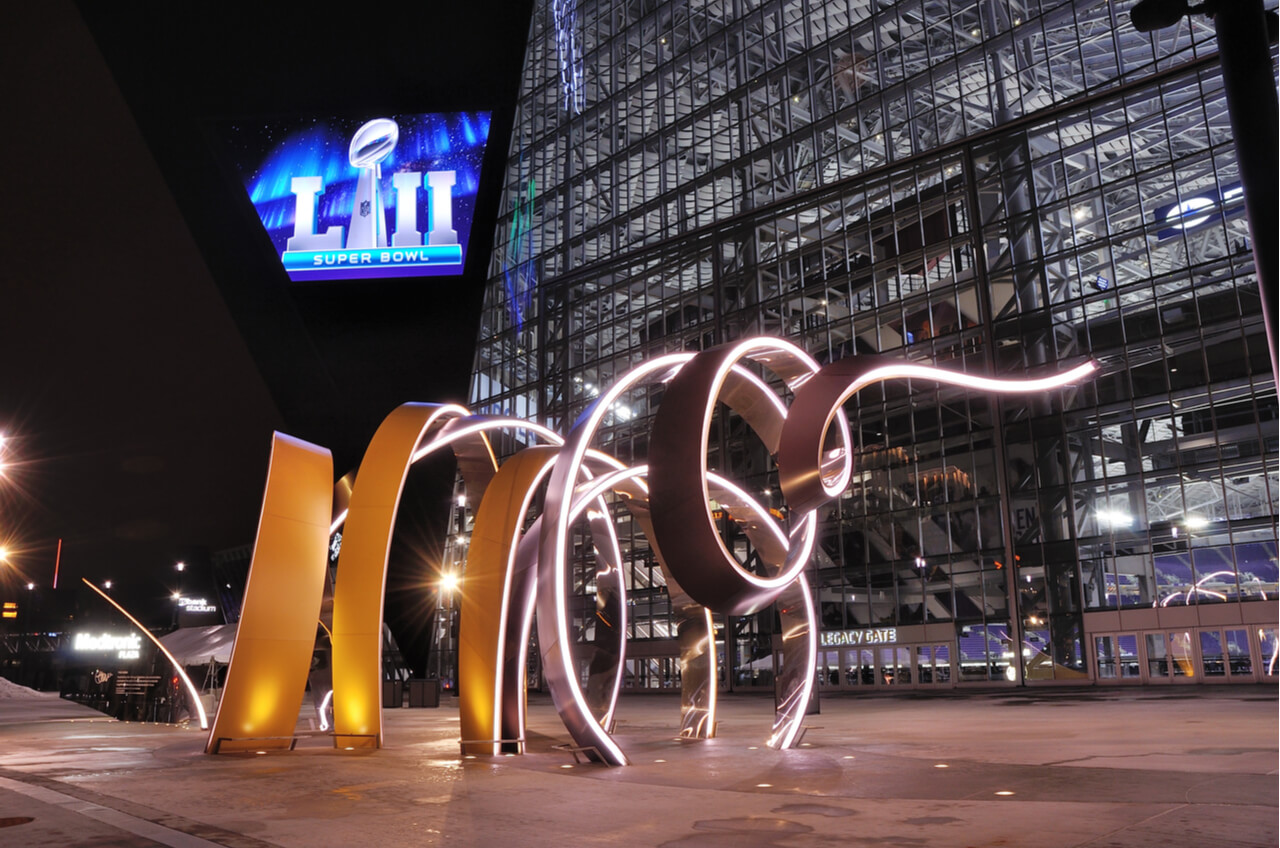Super Bowl Pitts Eagles Against Patriots, Legal Betting Against Offshore Books

The number one argument for legalizing and regulating sports betting in the United States will be evident again Sunday when the New England Patriots take on the Philadelphia Eagles in Super Bowl 52.
Americans make more illegal bets on the Super Bowl than anything else.
In fact, the American Gaming Association (AGA) estimates Americans will bet somewhere close to $4.76 billion on the game. Obviously, some of that money will be wagered in a place like Las Vegas. It’s perfectly legal to bet on sports there.
However, the AGA says licensed sports books in Nevada will really only take in about three percent of the total. That equals close to $138.5 million. It’ll makes for a big day for Nevada sports books, but it’s really just a drop in the bucket.
4.6 billion reasons to legalize sports betting
The overwhelming majority of the money being wagered on the game is going to be bet illegally. That means with illegal offshorewebsites and
bookies, who often have ties to organized crime.
In fact, the AGA estimates an incredible 97 percent of total wagers on the Super Bowl will be bet illegally. That’s around $4.6 billion. Which is enough to convince even the most conservative thinkers the time for legal sports betting in the United States has come.
The argument for legal sports betting is a simple one. Let’s say it becomes legal to bet on sports in the US. Then the billions bet on the Super Bowl every year would be wagered with legitimate gaming enterprises. The government would get to tax the billion dollar industry that’s going on right in front of them anyway. Plus, while gamblers who win will have to give the government a cut, they’ll get a lot more consumer protection than they currently do. Which is exactly none.
AGA President and CEO Geoff Freeman says the federal ban on sports betting has Americans putting billions dollars in the hands of shady and criminal enterprises. Now he’s wondering if Super Bowl 52 might be the last time that happens on such a large scale.
Christie v. NCAA
The hope is that governments, professional and amateur sports organizations, and the gaming industry are ready to work together to put an end to the massive illegal sports betting market. The truth is, they may be about to get the push they need from the Supreme Court of the United States to get it done.
SCOTUS heard arguments in Christie v. NCAA this past December. The case is essentially the New Jersey challenge to the Professional and Amateur Sports Protection Act of 1992. This is the law making sports betting illegal everywhere except Nevada. Limited parlay sports betting in Delaware and game square wagering in Montana are also exempt.
The case started with New Jersey lawmakers trying to pass a bill that would make sports betting legal at casinos and racetracks inside the state. When major sports leagues around the country got wind of the idea, they sued to prevent the state from doing it. Years of court battles landed the case in the Supreme Court. Now, both sides are awaiting a decision expected to be released some time in the first half of 2018.
Super Bowl 53 may be a different story
In the meantime, states across the country have been lining up to pass legislation that would legalize sports betting. That is, if SCOTUS rules in New Jersey’s favor. Or, if Congress finds some alternative way to allow interested states to move forward. There’s somewhere around 14 states on board now. More appear to be introducing similar legislation almost everyday.
The tide is clearly turning in favor of legal and regulated sports betting in the US. In fact, the Washington Post did a survey that showed a majority of Americans actually support the idea these days.
The momentum is on the sports betting side. So much so that come Super Bowl 53, the AGA will likely have given up using the astronomical figures bet on the game to argue against a federal ban. Instead, they’re a favorite to be using similar numbers to show how much of a success the new legal sport betting market actually is.
Photo by Mark Herreid / Shutterstock.com








